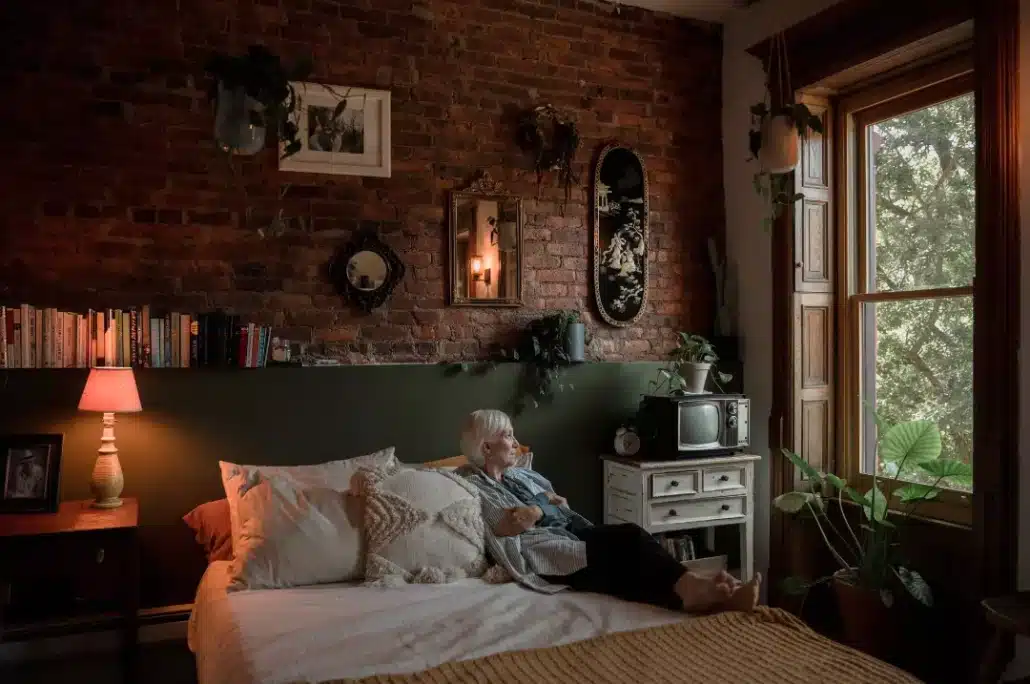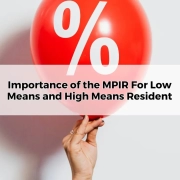In-home Care VS Residential Aged Care
Table of Contents
ToggleAs our loved ones age, their needs for assistance with daily living activities often increase. As a result, families in Australia are faced with the challenge of finding suitable care options to ensure their elderly family members receive the support they require. In-home care and residential aged care are two primary options available, each with its own advantages and considerations.
Finding suitable care options for ageing parents or grandparents is a crucial decision that impacts their well-being and quality of life. It is essential to ensure that their needs for physical assistance, emotional support, and social engagement are adequately met. By making informed choices, families can provide the best possible care and enhance the overall quality of life for their elderly loved ones.
This blog post will compare and contrast in-home care and residential aged care to help families in Australia make an informed decision.
What is in-home care?
In-home care is a personalised and flexible care option that allows elderly individuals to receive support and assistance within the comfort and familiarity of their own homes. It is designed to cater to the specific needs of each individual, promoting independence while ensuring they have access to the necessary help to maintain their well-being. Let’s take a closer look at what in-home care entails and the benefits it offers:
- Personal Care: Assistance with activities like bathing, dressing, grooming, and toileting to ensure personal hygiene and physical well-being.
- Medication Management: Administering medications as prescribed by medical professionals, helping with medication reminders, and ensuring compliance with treatment plans.
- Meal Preparation: Planning and cooking nutritious meals, accommodating dietary restrictions, and ensuring the individual is well-nourished.
- Companionship: Offering emotional support, engaging in conversations, and participating in recreational activities to combat loneliness and isolation.
- Household Chores: Light housekeeping tasks like laundry, cleaning, and organising to maintain a safe and comfortable living environment.
- Transportation: Assisting with errands, medical appointments, or social outings to help seniors stay active and engaged in the community.
Services provided by in-home care providers
In-home care providers typically offer a range of service packages that can be tailored to meet the specific needs of each client. Some common services offered include:
- Hourly Care: Suitable for individuals who require assistance for a few hours each day or week, depending on their needs and family support.
- Live-In Care: For seniors who need continuous care and supervision, live-in caregivers are available 24/7 to provide assistance.
- Respite Care: Temporary care provided to give family caregivers a break or to cover periods when the primary caregiver is unavailable.
- Specialised Care: Some in-home care providers may offer specialised care for individuals with specific health conditions, such as dementia or Parkinson’s disease.
Benefits of in-home care for elderly individuals and their families
In-home care offers numerous advantages, both for elderly individuals and their families:
- Familiar Environment: By receiving care at home, seniors can remain in a familiar environment surrounded by cherished memories, which can significantly contribute to their emotional well-being.
- Personalised Attention: In-home care allows for one-on-one care, ensuring that the caregiver can focus entirely on the individual’s needs and preferences.
- Independence and Autonomy: In-home care promotes independence by encouraging seniors to maintain control over their daily routines and activities.
- Enhanced Quality of Life: With personalised care and attention, elderly individuals can experience an improved quality of life, leading to higher overall satisfaction.
- Peace of Mind for Families: Knowing that their loved ones are being well-cared for at home provides families with peace of mind and reduces the stress associated with managing their care.
Cost considerations and funding options for in-home care
The cost of in-home care can vary based on factors such as the level of care required, the number of hours of care needed, and the region in which the individual resides. It is essential to consider the financial implications and explore funding options, including:
- Government Subsidies: In Australia, there are various government-funded programs and packages that may provide financial assistance for in-home care services.
- Private Funding: Families can choose to pay for in-home care services directly, either from savings or through a reverse mortgage or other financial arrangements.
- Insurance Coverage: Some private health insurance policies or long-term care insurance plans may offer coverage for certain in-home care services.
By understanding the definition, services provided, benefits, and cost considerations of in-home care, families in Australia can evaluate this care option more effectively and determine if it aligns with the needs and preferences of their ageing parents or grandparents.

What is residential aged care?
Residential aged care involves the transition of elderly individuals from their own homes to specialised facilities that provide comprehensive care and accommodation. These facilities, commonly known as aged care homes or nursing homes, are designed to cater to the specific needs of seniors who require more extensive assistance with their daily living activities.
Let’s explore the key aspects of residential aged care:
Features and services available in residential aged care facilities
Residential aged care facilities offer a range of features and services to ensure the well-being and comfort of their residents. These may include:
- Accommodation: Aged care homes provide private or shared rooms, communal living spaces, and various amenities to create a homely and comfortable environment.
- Personal Care: Trained staff assist with activities of daily living, such as bathing, dressing, grooming, and mobility support.
- Medical and Nursing Care: Registered nurses and healthcare professionals oversee the residents’ health needs, including medication management, wound care, and regular health assessments.
- Meals and Nutrition: Nutritious meals and dietary requirements are catered to, ensuring that residents receive adequate nutrition and hydration.
- Social and Recreational Activities: Aged care facilities offer a range of social and recreational programs, including exercise classes, games, outings, and opportunities for social interaction with peers.
- Palliative Care: Facilities often provide specialised palliative care services for individuals with advanced illnesses, focusing on pain management and enhancing quality of life.
Advantages and disadvantages of residential aged care
Residential aged care has its own set of advantages and considerations that families should carefully evaluate:
- Professional Care: Facilities have trained staff available round the clock to provide medical and personal care, ensuring that seniors’ needs are met consistently.
- Safety and Security: Aged care homes are designed to prioritise the safety and security of residents, including emergency response systems, supervision, and secure premises.
- Social Engagement: Residential aged care facilities offer opportunities for social interaction, companionship, and participation in organised activities, which can combat loneliness and isolation.
- Limited Independence: Moving to a facility means a loss of independence and the need to adapt to communal living and established routines.
- Adjusting to a New Environment: The transition to a new living environment can be challenging for some individuals, requiring time to adjust and feel comfortable in the aged care home.
- Cost Considerations: Residential aged care can be a significant financial investment, and families need to assess their ability to afford the ongoing fees and accommodation costs.
Cost considerations and funding options for residential aged care
The cost of residential aged care is influenced by factors such as location, facility type, room type (single or shared), and level of care required. Families should consider the financial implications and explore funding options, including:
- Means-Tested Government Subsidies: The Australian government provides subsidies through the Aged Care Funding Instrument (ACFI) based on an individual’s care needs and financial situation.
- Accommodation Payments: Residential aged care facilities may require residents to pay an accommodation payment, which can be paid as a lump sum or periodic payments, depending on the individual’s assets and income.
- Rental-style Payments: For those unable to pay the full accommodation payment upfront, rental-style payments, known as Daily Accommodation Payments (DAP) or Daily Accommodation Contributions (DAC), are an option.
- Combination Payments: Some individuals may choose a combination of a lump sum payment and ongoing rental-style payments.
By understanding the definition, features, advantages, and considerations of residential aged care, families can make informed decisions regarding the care of their ageing parents or grandparents.

Key factors to consider
When deciding between in-home care and residential aged care for your ageing parents or grandparents, it is crucial to carefully assess various factors to determine the most suitable option. Here are key considerations to keep in mind:
- Care Needs Assessment: Conduct a thorough assessment of your loved one’s care needs. Consider their level of physical assistance required, medical conditions, cognitive abilities, and any specialised care needs. This assessment will help determine whether in-home care or residential aged care can adequately meet their specific requirements.
- Safety and Security: Evaluate the safety measures in both in-home care and residential aged care settings. Consider factors such as fall prevention, emergency response systems, security protocols, and supervision. Determine which option provides a safer environment for your loved one, considering their mobility, cognitive abilities, and potential risks.
- Social Interaction and Community Engagement: Consider the importance of socialisation and community engagement for your ageing family member. Inquire about the social activities and opportunities for interaction offered in both in-home care and residential aged care settings. Assess which option can provide the desired level of social engagement, considering the individual’s interests and need for companionship.
- Personal Preferences and Independence: Take into account the personal preferences and desires of your loved one. Some individuals may have a strong preference to age in their own home, maintaining a sense of independence and familiarity. Others may prefer the community and support available in a residential aged care facility. Respect their wishes and involve them in the decision-making process as much as possible.
- Accessibility and Proximity: Consider the accessibility and proximity of care services in relation to your location. Assess the availability of in-home care providers or the proximity of residential aged care facilities. Accessibility and convenience play a significant role in ensuring regular and timely care for your loved one.
By carefully evaluating these key factors, you can make an informed decision regarding the most suitable care option for your ageing parents or grandparents. It is advisable to consult with healthcare professionals, care providers, and other families who have faced similar decisions to gather insights and advice specific to your situation.
What is the difference between in-home care and residential aged care
When considering care options for ageing parents or grandparents, it’s important to understand the differences between in-home care and residential aged care. These two options offer distinct approaches to providing support and assistance to elderly individuals.
- Setting: In-home care allows elderly individuals to receive care and support in the comfort of their own homes, while residential aged care involves transitioning to a specialised facility.
- Care Environment: In-home care maintains a familiar and personalised environment, while residential aged care provides a communal living setting.
- Personalised Attention: In-home care offers one-on-one assistance from a dedicated caregiver, while residential aged care provides care from a team of healthcare professionals.
- Independence: In-home care promotes independence by enabling individuals to remain in their own homes and make decisions about their daily activities, whereas residential aged care involves adjusting to communal living and established routines.
- Safety Measures: Residential aged care facilities have dedicated safety protocols, emergency response systems, and 24/7 supervision, providing a higher level of safety compared to in-home care.
- Social Interaction: Residential aged care facilities offer opportunities for socialisation and engagement with peers through organised activities, while in-home care relies on social connections outside of the care setting.
- Support Services: In-home care focuses on providing assistance with daily activities, while residential aged care offers comprehensive services including medical and nursing care, meals, and recreational activities.
- Cost: The cost of in-home care can vary depending on the level of support needed and the number of hours of care required, while residential aged care involves ongoing fees and accommodation costs.
It is important to consider these differences when evaluating which care option aligns best with the needs, preferences, and circumstances of your ageing loved ones.

Choosing the right care option for your ageing parents or grandparents is a significant decision that requires careful consideration. Remember, there is no one-size-fits-all solution, and the decision may involve a combination of care options as needs evolve over time. Continually reassessing and adapting the care plan ensures that your ageing parents or grandparents receive the support they need as they navigate their later years.









